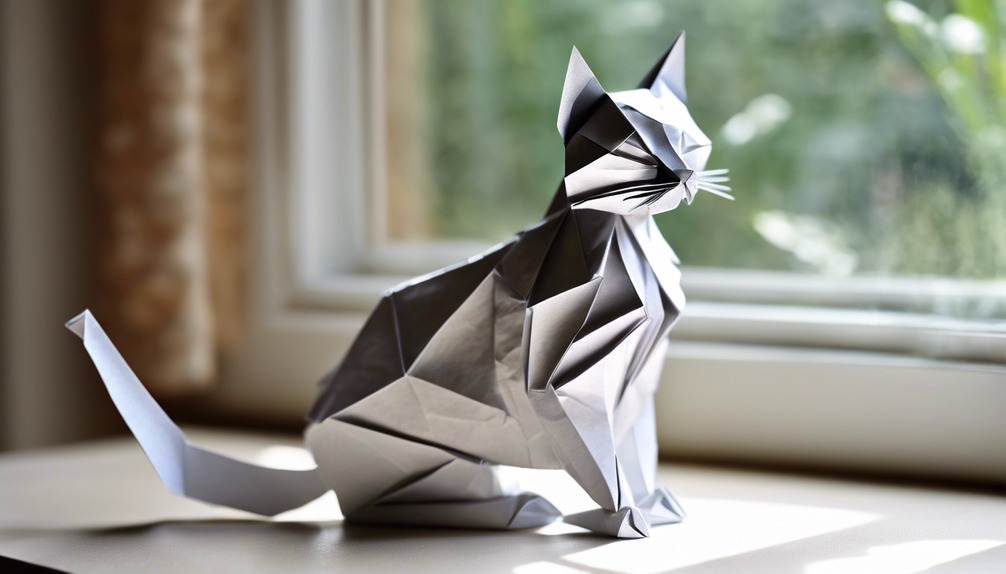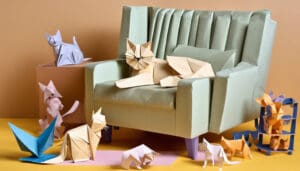As our beloved cats grow older, their nutritional needs and activity levels can change, making it important to ensure they maintain a healthy weight for their well-being.
You may have noticed a few extra pounds creeping up on your senior cat, or perhaps they seem to have lost weight unexpectedly. In either case, understanding the ideal weight range for aging felines and how to achieve it can impact their overall health and longevity.
In this discussion, we’ll share tips and insights on keeping your older cat at a healthy weight.
Key Takeaways
- Monitoring weight is important for aging cats to alleviate joint pain and detect health problems early.
- Maintaining an ideal weight and muscle mass is important for overall health and well-being in aging cats.
- Regular vet check-ups and increased monitoring of weight are essential for senior cat health.
- Preventive care, including regular dental check-ups, is vital for the overall health of senior cats.
Age Consideration for Cats
As your cat ages, it’s important to make simple modifications to their environment to accommodate their changing needs, particularly in regards to joint pain and mobility issues.
Aging cats are more prone to experiencing discomfort due to conditions like arthritis, which can affect their mobility and overall quality of life. You can help alleviate some of these challenges by ensuring that your cat has easy access to their favorite spots, such as beds or cozy resting areas, without having to jump or climb too much.
Keeping their weight in check is important for their health. Extra weight can exacerbate joint pain, so it’s essential to monitor their diet and ensure they’re at a healthy weight. Providing them with a balanced diet and encouraging gentle exercise can contribute to their overall well-being.
Regular check-ups with the veterinarian can help in identifying and addressing any age-related health concerns, ensuring that your beloved cat receives the best possible care as they age.
Importance of Monitoring Cat’s Weight
Regularly monitoring your cat’s weight is essential for detecting potential health issues early and ensuring their overall well-being. It’s important to keep an eye on your cat’s weight as it can be a key indicator of their health status.
Here’s why monitoring your cat’s weight is important :
- Early Detection: Regular weight checks can help you identify any sudden or unexplained weight loss, which could be a sign of underlying health problems.
- Trend Identification: Keeping records of your cat’s weight over time can help you identify any gradual changes or trends that may indicate a potential health issue.
- Tailored Care: Regular monitoring is important for senior cats and those with chronic health concerns. It allows for early intervention and the implementation of a tailored weight management plan if necessary.
Ideal Weight for Aging Cats
As your cat enters their golden years, maintaining an ideal weight becomes important for their overall health and well-being. It’s essential to keep an eye on your cat’s weight and ensure they’re within the recommended range for their breed and frame.
Focusing on weight loss in seniors and the preservation of muscle mass will be key points to consider as we find the ideal weight for aging cats.
Weight Loss in Seniors
Weight loss in senior cats can be a concerning sign of potential health issues and should be carefully monitored. It’s important to understand the underlying causes and address them promptly. Here are essential points to consider:
- Healthy Weight: Ensure your senior cat maintains a healthy weight to prevent pet obesity and support their overall well-being.
- Unexplained Weight Loss: Keep an eye on any unexplained weight loss in senior cats, as it can indicate an underlying health problem that requires attention.
- Regular Vet Visits: Increased vet visits are necessary for senior cats to monitor their weight and overall health, ensuring they receive age-appropriate care and support.
Understanding the nuances of weight management in senior cats can help maintain their health and quality of life.
Muscle Mass Maintenance
Maintaining muscle mass in aging cats is essential for their overall health and mobility. As your cat ages, it’s important to focus on preserving their muscle mass to support their well-being. Keep an eye on their weight and body condition to ensure they stay within a healthy range.
Here’s a helpful table to guide you in assessing your cat’s muscle mass and overall weight:
| Aspect | Ideal Condition |
|---|---|
| Weight | Maintained within a healthy range |
| Body Shape | Hourglass figure from above view |
| Belly | Firm and not saggy |
| Rib Feel | Easily felt under a thin layer of fat |
| Mobility | Able to move comfortably and without difficulty |
Vet Check-ups for Senior Cats
It’s important to prioritize regular vet check-ups for your senior cat. These visits allow the vet to monitor your cat’s health and catch any potential issues early on.
Keep an eye on your cat’s weight changes and don’t hesitate to report any concerns to the vet.
Senior Cat Health
Regularly monitoring your senior cat’s weight through frequent veterinary check-ups is essential for maintaining their health and detecting any potential issues early on. Here are some key points to consider for ensuring the health of your aging cat:
- Increased Vet Check-ups: As cats age, more frequent vet check-ups are necessary for early detection of health problems.
- Bloodwork: Regular bloodwork can set up baseline measurements for key markers and help identify potential health concerns in senior cats.
- Dental Care: Look out for signs of dental problems such as bad breath or difficulty eating, and consider dental checkups if any issues are noticed in aging cats.
Preventive Care
Ensuring the wellbeing of your senior cat involves scheduling regular vet check-ups to promptly identify any changes in behavior or weight and to establish baseline measurements through bloodwork. More frequent check-ups are recommended for senior cats, particularly those with chronic health concerns. Monitoring and recording your cat’s weight at home and during vet visits is important for identifying changes.
Increase the frequency of vet check-ups for senior cats to ensure early detection and management of age-related health issues. This proactive approach to preventive care can help maintain your cat’s overall health and quality of life. Obesity is a common issue in senior cats, so regular vet check-ups can also help in managing weight and ensuring that your cat maintains a healthy average weight.
Dental Care for Senior Cats
As your cat enters their senior years, maintaining proper dental care is essential for their overall health and well-being. Here are some essential tips to ensure your senior cat’s dental health:
- Regular Checkups: Just like with humans, regular dental checkups are necessary for senior cats. These checkups can help identify and address any dental issues before they escalate.
- Warning Signs: Keep an eye out for signs of dental problems such as sensitivity, tartar buildup, discoloration, or foul odor. If you notice any of these issues, it’s important to schedule a dental checkup for your cat.
- Preventive Measures: Regular tooth brushing and providing dental treats can go a long way in maintaining your senior cat’s dental hygiene. These measures can help prevent dental issues and keep your cat’s teeth and gums healthy.
Dental care plays a vital role in your senior cat’s overall well-being. By staying proactive and attentive to their dental health, you can help them maintain a happy and comfortable life as they age.
Environmental Adaptations for Aging Cats
As your cat enters their golden years, it’s important to make their living space senior cat-friendly.
Providing ramps or mini staircases can help them reach their favorite perches with ease, while low-profile litter boxes and fine-grain litter can assist those with limited mobility.
Consider adding elevated food and water bowls, soft bedding, and warming blankets to help alleviate any discomfort your aging cat may experience.
Senior Cat-Friendly Spaces
Creating a comfortable and accessible environment for your aging cat can be achieved through simple modifications and thoughtful design considerations. When creating senior cat-friendly spaces, it’s important to consider your cat’s weight, activity level, and health.
Here are some ideas to help you create a space that caters to your aging cat’s needs:
- Provide easy access to essential areas with ramps or mini staircases.
- Ensure easy access to the litter box using low-entry or ramp-style options.
- Place food and water bowls at a comfortable height to prevent strain on aging joints.
Mobility Aids for Cats
To assist your aging cat with limited mobility, consider incorporating ramps or mini staircases to help them access their favorite perches. These aids can make it easier for your cat to move around without straining their joints.
It’s also important to maintain a healthy weight for your cat, as extra pounds can exacerbate mobility issues.
Providing a comfortable and supportive environment is important for aging felines. Opt for low-profile litter boxes and fine-grain litter to help your cat maintain proper hygiene.
Consider elevated food and water bowls to make mealtimes more accessible. Soft bedding and warming blankets can also provide relief for arthritic cats.
Comfortable Resting Areas
Provide your aging cat with soft and supportive bedding to alleviate joint pain and discomfort, offering a warm and cozy area for them to rest and relax.
When creating comfortable resting areas, make sure to include elevated spots and perches for easy access, non-slip surfaces or carpeting to prevent falls, and multiple resting areas throughout the home to provide options.
Elevated spots and perches allow your senior cat to access their favorite spots without strain, while non-slip surfaces ensure a safe environment.
Having various resting areas can prevent stress from competition over a single spot and encourage movement.
Managing Pain Through Play
When your aging cat is experiencing pain, engaging in gentle and interactive play can be a beneficial way to help manage their discomfort. Play not only provides mental and physical stimulation but also encourages weight management and promotes overall well-being. Here are some play ideas to help your aging cat stay active and manage pain:
| Play Activity | Description |
|---|---|
| Feather Wand | Use a feather wand to encourage light jumping and pouncing. This gentle activity can help maintain flexibility and improve joint mobility. |
| Interactive Toys | Invest in interactive toys that dispense treats or encourage batting and chasing. These toys can keep your cat engaged and provide mental stimulation, distracting them from the pain they may be experiencing. |
| Laser Pointer | Engage your cat in a low-impact workout by using a laser pointer to encourage them to chase the elusive red dot. This playful activity can help maintain a healthy weight and provide mental stimulation. |
Assisting Aging Cats With Daily Activities
Helping your older cat with daily tasks can significantly increase their comfort and movement as they go through their older years. It’s crucial to modify their surroundings so they can easily reach important places.
Here are some ways to assist your aging cat with daily activities:
- Litter Box Access: Provide easy access to litter boxes by using low-entry or ramp-style options. This can help prevent accidents and discomfort for your senior cat.
- Food and Water: Place food and water bowls at a comfortable height to prevent strain on aging joints. This simple adjustment can make mealtime more enjoyable for your cat.
- Preventing Falls: Install non-slip surfaces or carpeting to prevent slips and falls for aging cats. This can help them move around with confidence and reduce the risk of injuries.
Benefits of Sunlight for Senior Cats
As your senior cat continues to explore their daily activities with comfort and ease, it’s essential to recognize the significant benefits that sunlight can bring to their overall well-being and health.
Sunlight exposure plays an important role in the lives of aging felines. It helps them produce vitamin D, which is essential for calcium absorption and bone health, contributing to maintaining a healthy weight and bone density as they age.
Natural sunlight can improve mood and reduce stress in senior cats, promoting their overall well-being. This is required in supporting their aging bodies and helping them stay active.
Sunlight exposure supports the regulation of the sleep-wake cycle, aiding in maintaining healthy sleep patterns for senior cats, which is vital for their overall health.
Vitamin D synthesis from sunlight exposure can support the immune system, helping senior cats stay healthy and ward off illness.
Sunlight exposure provides opportunities for exercise and mental stimulation, contributing to the overall health and vitality of senior cats.
Frequently Asked Questions
What Is a Healthy Weight for an Elderly Cat?
Maintaining a healthy weight is vital for the well-being of elderly cats. It’s important to have regular vet visits and keep an eye on their weight, looking out for signs such as a saggy belly or if their ribs are hard to feel. They should appear to have an hourglass shape from above.
How Much Should Cats Weigh by Age?
You should know that a cat’s weight varies by age and breed, but most domestic cats should weigh around 10 pounds. Regular check-ups can help monitor their weight, and unexplained weight loss may signal a serious issue.
What Is a Healthy Weight for a Long Cat?
A long cat should ideally weigh around 10 pounds, though this can differ by breed and size. A healthy cat has an hourglass shape and ribs that can be felt easily.
What Is an Unhealthy Weight for a Cat?
An unhealthy weight for a cat can lead to medical problems like diabetes and heart disease. Look out for saggy belly and difficulty feeling ribs. Adjust portion sizes and consider wet food to help your cat maintain a healthy weight.




